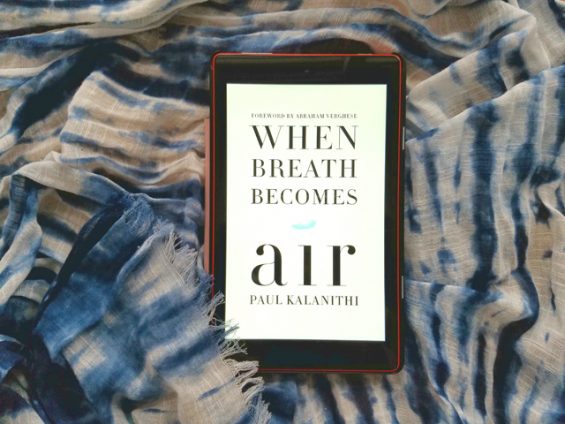Book Review: “When Breath Becomes Air” by Paul Kalanithi

“I would have to live in a different way, seeing death as an imposing itinerant visitor but knowing that even if I’m dying, until I actually die, I am still living,” writes Paul Kalanithi in the 2015 Pulitzer-shortlisted When Breath Becomes Air. As short and memorable as his own life, Kalanithi’s memoir is at turns elegant, tear-provoking, and distant—and a wholly necessary read for anyone who has taken life for granted.
By conservative estimate, that’s, well, all of us.
There are no big spoilers in When Breath Becomes Air. On page one, Kalanithi, 36 years old at the time, recounts the moment of his late-stage cancer diagnosis. From there he backtracks through the making of the man, from a childhood of immersing himself in literature to his decision in grad school to switch to a medical major. The bulk of the book describes Kalanithi’s promising career as a neurosurgeon, from the long years of schooling and residency through the seemingly countless double shifts in the hospital, and its strain on his young marriage to college sweetheart Lucy.
Kalanithi frames his own experience by first walking us through his process of becoming acquainted with caring for those who feel death’s cold breath on their cheek. There’s the overwhelming sadness when he loses a patient, the frantic search for answers when logical treatments seem to fail, and the hindsight-is-20/20 regrets about how he might have been less rushed or more compassionate with a frightened or obstinate patient. When the doctor suddenly becomes the patient—and someone who has dedicated much of his life to being a healer takes a backseat in his own treatment—we’re plunged into a swirl of complicated emotions and the author’s drive to make sense of not-quite-sensical.
Sometimes Kalanithi lets his writer self override his scientist self, and the result is beautifully descriptive passages like this one: “Craning your head back, you could see the day’s blue darken halfway across the sky, and to the west, the night remained yet unconquered—pitch-black, stars in full glimmer, the full moon still pinned in the sky.”
Later, he foreshadows his upcoming experience while describing the all-consuming nature of being a physician resident in a hospital: “At moments, the weight of it all became palpable. It was in the air, the stress and misery. Normally, you breathed it in, without noticing it. But some days, like a humid muggy day, it had a suffocating weight of its own. Some days, this is how it felt when I was in the hospital: trapped in an endless jungle summer, wet with sweat, the rain of tears of the families of the dying pouring down.”
And although these moments come often enough—the final paragraph is especially lovely—Kalanithi as a writer remains remote, at arm’s length for much of the journey. He frequently scratches away surface layers to reveal the deeper truths of living with death, and was clearly on his way to delivering something spectacular. But he eventually became too ill to write, and died before showing us what the final chapters or revision of When Breath Becomes Air may have been. The epilogue, written by his wife, attempts to resolve the unresolved, and while well written in its own right, it leaves behind the feeling of a story untold.
Still, When Breath Becomes Air is both fascinating as a memoir of a life cut short and stirring in its open contemplation of uncomfortable themes, like how loss affects families, the self-protective desire for withdrawal when loved ones are clamoring for interaction, and how to make sense of horrible things that happen to good people. It’s not a happy or easy read, but it’s an unforgettable one.
